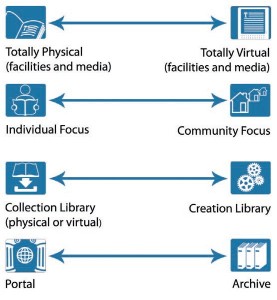Ok. So, it’s been a long time since I’ve posted anything. The fact is, I’ve been learning the ropes at the Ottawa Public Library – in between training and meetings, I get to do some actual work. What work? Well, as an Integrated Library Systems Librarian, I get to bang literal and metaphorical wrenches against the largely metaphorical pipes that keep information flowing around the library.
I’ve latched onto the metaphor of being something like a Victorian steam engineer, working away in a gritty bunker trying to keep this big ol’information mill spinning. Without all the Steampunkish insinuations, it is a cool enough idea. Never mind that I cross through a children’s library to get to the office where my desk is…
Anyways, I’ve been remiss in following up on some posts I’ve half-started. So, in the interest of clearing my slate, here’s a run-down.
1. The New Surrey BC Main Library looks like a space base. Cool.
2. A paper released by the Public Lending Right Commission gives the state of affairs vis-a-vis eBooks in Canada. It’s a bit watery, but the point is things have to change for eBooks to remain viable for public libraries (duh…).
3. A cool graffiti taxonomy archive.
4. Author Lev Grossman declares himself to be crochety about eBooks via the New York Times. Nice art with the article, though.








